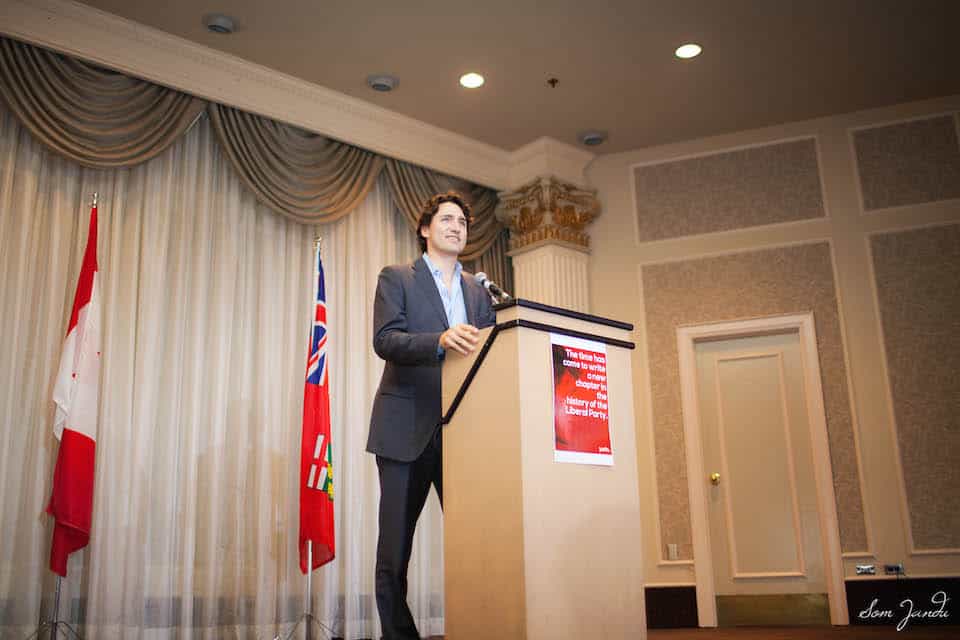If Justin Trudeau wins the election this fall, Canadians may no longer be able to abstain from voting. The liberal leader is advocating for the consideration of mandatory voting, as part of his 32-point plan in an effort to “Make every vote count.”
Such measures must seem necessary, given that in 2011, only about 60 per cent of the Canadian population participated in the federal election.When you compare this figure to other countries with optional voting, Canada’s voter turnout seems meager. In recent elections, Italy saw 75 per cent of its population vote, while Sweden reached 85 per cent. Clearly, political involvement in Canada could be much stronger.
Yet, mandatory voting is not the right solution to Canadian voter apathy. An election is supposed to be a conversation between a government and its citizens, where the latter communicates its desire for a number of specific reforms to be enacted. Forcing this conversation is only a superficial fix. The problem of voter apathy is rooted in culture and national identity, and as such, needs to be faced at this level for political inclusiveness to really thrive.
This is where institutions like U of T, come into play. The first and most important step is to inspire a population: students. Bringing relevant political bodies and individuals to the students could create a direct connection with the politicians.
Granted, parties take care of this during their election campaigns. However this campaigning can come off as greedy and commercial – their only aim is to gain votes. The lack of authenticity during campaigns makes direct contact with voters feel like a transaction — this goes against the goal of building a political culture.
Consequently,universities must create genuine opportunities for a significant part of the population: students. For students to interact with political parties on a down-to-earth basis throughout the years. Such opportunities must be carried out regularly rather than merely during the campaign period.
These events need not necessarily include political parties, as they are not meant to be promotion sessions. Instead, they aim to stimulate dialogue, consciousness of a society and eventually, action. This conversation can exist with all types of participants: politicians, but also professors, non-governmental organization representatives, corporate stakeholders, students themselves — so on and so forth.
Universities, especially ones with large student bodies like U of T, are a special place to begin this movement because of the diversity of its population. There are few other instances or places where people from such varying backgrounds are able to interact on such a regular basis.
This means students will be particularly different views to issues, they would have experienced political, economic, and social gaps in various ways. Gaining anothers perspective rids us of the ignorance that would have originally stopped someone from not involving themselves politically, or voting. This is why universities are so important in fixing low political awareness.
We are constantly reminded of the hardship that our ancestors went through for us to have the right to vote. We should feel ashamed for not taking advantage of it, we also need to create an active political culture in order to truly understand what they were fighting for. How can there be a political conversation between a voter and its government when there is no relationship to begin with?
Mandatory voting would only fix the problem in the short run, as it will not create a genuine interest in politics. A political culture can grow using universities, and educational bodies as tools. Because of the special resources they hold: diverse social, economic, political, and cultural backgrounds. Universities are a key to encouraging political involvement. The political system needs to inspire participation, not force it.
Francesca Morfini is a fourth–year student at St. Michael’s College studying international relations and history.


